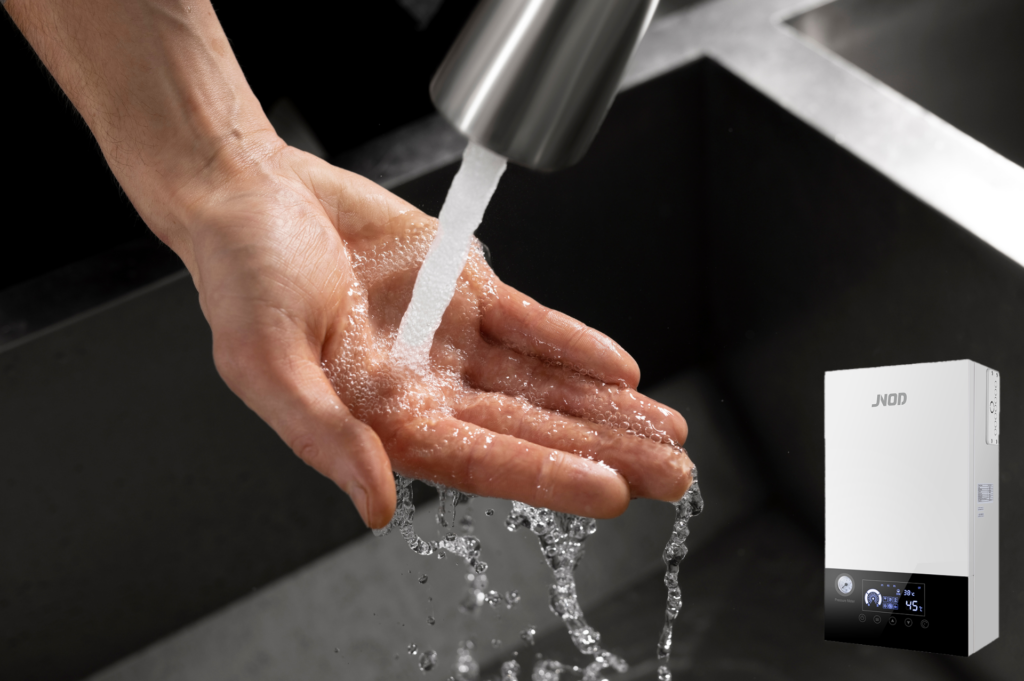How Hard Water Affects Your Electric Boiler: What You Need to Know
Hard water is a common issue in many regions, and it can cause serious problems for your electric boiler. If your heating system has scale, you’re likely to face reduced efficiency, higher energy bills, and even costly repairs.
In this article, we’ll explain how hard water impacts your electric boiler and how you can prevent the damage.
What Is Hard Water?
Hard water contains high levels of minerals, especially calcium and magnesium. These minerals are picked up as water flows through soil and rock. While hard water is safe to drink, it’s not ideal for heating systems.
In an electric boiler, when hard water is heated, minerals crystallize inside the water tank and on the heating element and form lime deposits, which are scale.

How does hard water affect your electric boiler?
It acts as insulation and reduces heat transfer. Your boiler has to work harder to heat the same amount of water. This results in higher electricity consumption and a shorter boiler life.
Reduced Efficiency and Performance
Scale buildup caused by hard water can hinder the heating element from doing its job, and heat transfer will be less efficient. Hot water will take longer to heat, and your energy costs will go up. You may also notice uneven heating or fluctuations in water temperature. Scale buildup on tubes can also affect water flow.
Increased Damage
Scale will settle at the bottom of the water tank, affecting the boiler’s heating. When the boiler is working, bubbles will be generated in the water tank, which will stir up the scale. Wearing the inner wall of the water tank, thus causing corrosion and leakage.
Scale can also damage the heating pipes that carry water from the boiler to the room. First, it affects the flow of heat. Second, if the pipes overheat, they may burst. Third, too much scale accumulation will block the tubes and prevent water from flowing. Heating elements, pumps, and valves are all more likely to fail when limescale is present.
This means:
- More maintenance
- More frequent part replacements
- Higher long-term costs
Noisy Boiler Operation
If your boiler makes popping or rattling noises, this is most likely caused by scale buildup caused by hard water. This noise is caused when bubbles form under the scale and suddenly burst when the water boils.
How to Reduce Scale and Prevent Scale Buildup?
Luckily, there are ways to reduce or prevent the damage hard water causes:
Install a Hard Water Softener
A water softener removes excess minerals from your water before it enters the boiler system. This is the most effective long-term solution.
Use Scale Inhibitors
These are chemical treatments that slow down scale formation. They’re easy to add to your heating system but may need to be topped up regularly.
Schedule Regular Maintenance
Have a professional service your boiler annually. They can descale the system and check for early signs of damage.
Conclusion
Hard water may seem harmless, but it can take a big toll on your electric boiler. From poor heating performance to expensive breakdowns, the effects are clear. By understanding the risks and taking simple steps to prevent scale buildup, you’ll keep your boiler running efficiently for years.
